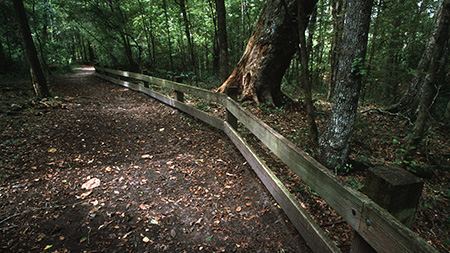Soil, Water and Ecosystem Sciences
On Campus Courses
Course Listings:
SWS 4932: Ecosystem Services: Theory, Methods, and Practice

About the Course
Ecosystem services are the benefits people obtain from ecosystems. These include provisioning services, such as the supply of food and forage; regulating services, which involve climate regulation, air and water purification, carbon sequestration, and pollination; supporting services that are fundamental to the functioning of all other ecosystem services, such as soil formation, nutrient cycling, and primary production; and cultural services
through spiritual enrichment, recreation, and aesthetic experiences.
In this course we will examine ecosystem services from an interdisciplinary perspective centering on the conceptual background, indicators, and various quantitative and qualitative approaches for ecosystem services assessments, including biophysical, socioeconomic, model-, expert-, and citizen science-based methods. We will also review initiatives and applications that integrate ecosystem services assessments into policy and decision-making in various domains, such as natural capital accounting, biological conservation and land use planning.
Course Learning Objectives
After successfully completing the course, students will be able to:
- Identify the definition and common classifications of ecosystem services.
- Contrast different ecosystem services terminologies and interpret the ecosystem services cascade framework.
- Illustrate ecological structure and functions, and socio-ecological processes that underpin the delivery of different types of ecosystem services.
- Identify ecological indicators used to measure ecosystem services.
- Examine and compare the different methods of quantifying, mapping and valuing ecosystem services.
- List and discuss major intergovernmental and governmental programs and initiatives that mainstream ecosystem services into policy instruments.
- Identify existing data, variables and indicators and develop an analysis for ecosystem services assessments.
Credits: 3
Semesters Offered: Fall (100% Online)
General Education Requirement Course: No
Textbook: None. Required readings are available on Canvas.
Recommended Textbook: Routledge handbook of ecosystem services. Potschin, M., Haines-Young, R., Fish, R., & Turner, R. K. (Eds.). (2016). Routledge.
(For UF students, full text of the book is available with unlimited user access through https://guides.uflib.ufl.edu/ebooks/)
